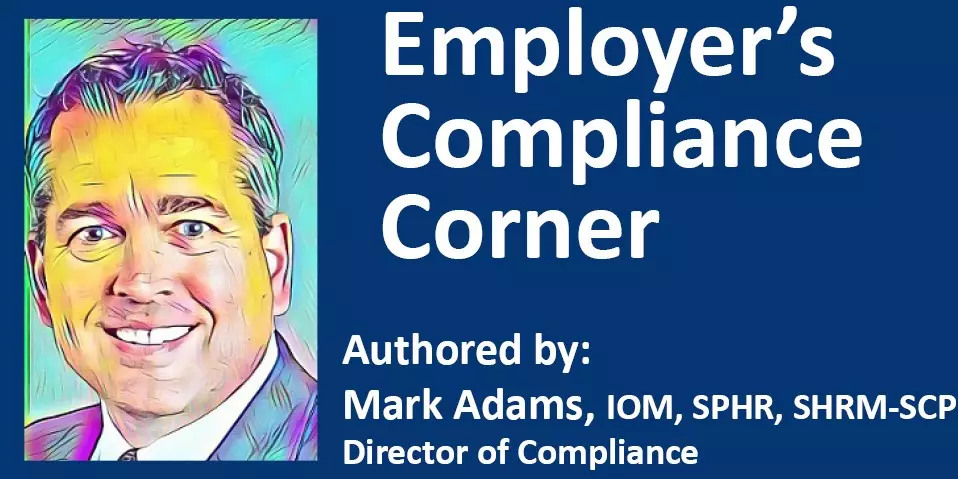
For many multistate employers, a key objective has always been establishing policies that strike the right balance between ease of administration (that is playing by one set of rules) while ensuring that your approach remains compliant in the states where you reside.
When it comes to the subject of holidays, sometimes that indeed is an exercise in futility.
Paid holidays have been a fundamental staple that most employers offer their employees. While there is no law that requires employers to provide such paid days off, how they are treated by employers who do indeed provide them can vary greatly.
Some states do not regulate them at all. In these cases, employers have the freedom to craft who is eligible for receiving this paid time off, what these days are worth, whether they can be forfeited under certain situations after they have been earned, and whether they need to be paid out at termination or not.
Other states (such as Connecticut) treat them as a form of a fringe benefit. In Connecticut, they can define within their policy the eligibility and conditions for earning these days; including adding conditions in which the days can be forfeited as well. The difference here is if the paid days have been earned and the conditions have been fully met, then the day(s) must be paid out timely or in the case of a terminated employee, paid out in their final paycheck.
For example, A Connecticut employer that provides Thanksgiving as a paid holiday for all of their full-time employees is supposed to include the payment for this day off to all qualified employees within the next payroll that is issued following the holiday. By contrast, if this same Connecticut employer had also incorporated a forfeiture provision into their policy which stipulated that paid holidays are not payable at separation of employment to employees that resign without giving proper advance notice, then that provision could likewise be enforced against such an employee who may have abruptly resigned; allowing for the forfeiture of the paid holiday that otherwise would have been earned.
And then there are other states that view paid holidays as wages. Unlike Connecticut, in these states, once the holiday has been earned, it cannot be forfeited. So, such forfeiture clauses in a holiday policy for failing to give proper notice, for instance, would not be enforceable against an employee. Massachusetts is one such state that views paid holidays in this manner. Rhode Island considers them the same as well; provided that an employee has completed at least one year of service with the employer.
Other issues can also vary by state. In some states, employers may not be permitted to operate on certain holidays. Others may allow operation for certain industries. For those allowed to operate, payment of wages may be at straight time, while for others it may be at some premium rate of pay. Therefore, careful awareness is important for the HR professional who is transitioning to a new state or taking a position at a new business.
For instance, in Massachusetts, manufacturers and retailers need a permit to operate on Thanksgiving. Manufacturers, if they receive such a permit, can pay employees at straight time for the hours worked. Retailers on the other hand, need to pay time and a half. In Rhode Island, a permit is required of retailers to operate on Thanksgiving and, if obtained, work must be paid out a time and a half. While that mechanism is out there, obtaining such a permit is limited to select businesses such as pharmacies and retailers of food and other perishable items. View the Rhode Island Statute Here. On the other hand, Connecticut precludes employers from operating on Thanksgiving though allows retailers to do so. View the Connecticut Statute Here. There are no requirements to pay time and a half.
However, having stated the legislative considerations, there are other obstacles that could change the outcome. For instance, for an employee who forgoes a paid day off to observe a holiday because they are having to work it instead, additional payment considerations may come into play to provide additional compensation for the holiday that had been earned. Collective bargaining agreements or policies may establish more generous (or protective) provisions as well.
Then there’s the varying level of constraints across the range of holidays in a calendar year. While the likes of Thanksgiving and Christmas may have numerous constraints, other holidays, such as Martin Luther King Day or President’s Day, for instance, may not. Massachusetts has a whole page dedicated to the various forms of treatment of all the legal holidays that can be found here.
In short, not all holidays are created equal and HR professionals need to carefully evaluate their own policy and practice to ensure that they remain compliant in light of their industry and the state where they reside.
Words to consider as the holiday season approaches.
Thank you for viewing this article in EANE’s Employer’s Compliance Corner Blog, Authored by our Director of Compliance, Mark Adams. Please visit again soon to stay up to date on today’s compliance updates and best practices for employers.